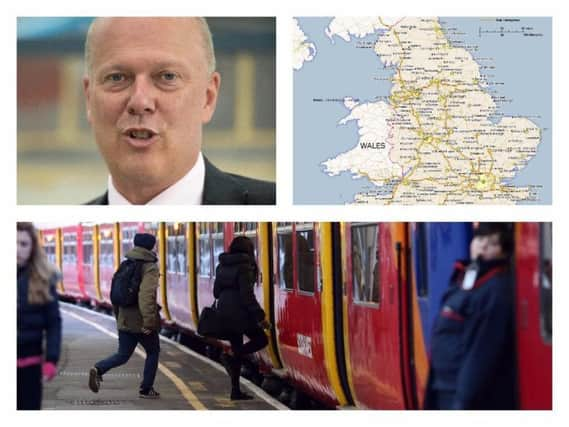Chris Grayling explains government's U-turn on electrification of trans-Pennine rail line


His insistence that there may be insufficient benefits on some routes to justify the cost of electrification stands in stark contrast to previous enthusiasm from senior Conservative figures.
As Prime Minister and Chancellor respectively, David Cameron and George Osborne repeatedly pointed to their promise to electrify the trans-Pennine route as evidence of their commitment to the North.
Advertisement
Hide AdAdvertisement
Hide AdMr Grayling’s predecessor, Sir Patrick McLoughlin, commissioned a report identifying future lines which should be prioritised for electrification after 2019.
The Leeds-Harrogate-York and Calder Valley lines were among those recommended by the electrification ‘task force’.
But Mr Grayling has now cancelled electrification along a stretch of the Midland Mainline and has suggested complete electrification may not be the answer to improving trans-Pennine journeys.
He said: “I think what is different is the technology has changed.
Advertisement
Hide AdAdvertisement
Hide Ad“We now have the ability to deliver change faster, on Midland Mainline the new trains will arrive three or four years earlier than would otherwise be the case.”
Mr Grayling said the development of bi-mode trains, capable of running on both electric and diesel, meant there were now “options that we didn’t have before”.
The Transport Secretary also defended the Government’s record on rail electrification.
He said: “It is worth saying in all of this that in 13 years in Government Labour electrified 10 miles of railway in the entire country.”
Advertisement
Hide AdAdvertisement
Hide AdReferring to criticism from Greater Manchester mayor Andy Burnham, he said: “We’ve actually electrified more miles of railway in Greater Manchester than Labour did across the whole country.”
Mr Grayling said the public would expect the Government to react to changing technology.
He yesterday announced £5m to help develop digital signalling as part of the upgrade to the trans-Pennine route which would allow more trains to use the track.